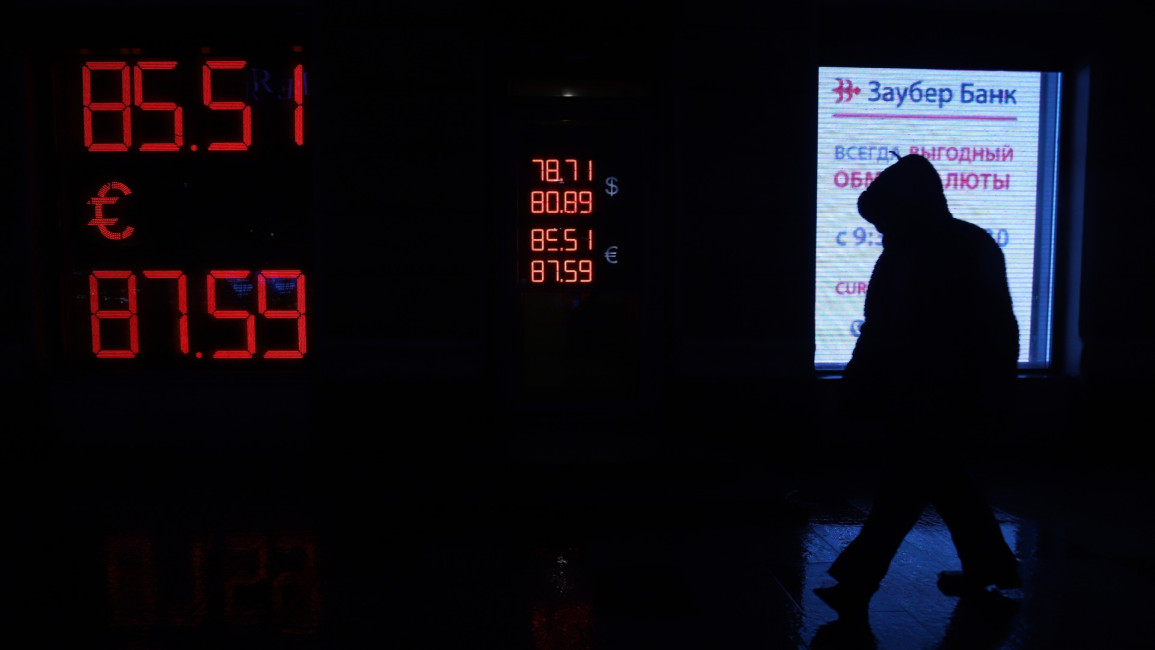Oil prices rise as producers edge towards long-awaited deal to reduce output
The price rise also followed remarks by Kuwait's Oil Minister Khaled al-Fadhel who said top producers were intending to cut production by between 10 and 15 million barrels per day.
US benchmark West Texas Intermediate was up about three percent at $25.84 a barrel in afternoon Asian trade, having risen almost five percent at the open.
Brent crude, the international benchmark, rose 0.7 percent to $33.08. It had jumped about three percent in earlier deals.
The developments come as OPEC+, the group of oil-producing countries and its allies including Russia, are preparing to hold a teleconference later on Thursday in which they are expected to agree to reduce output to support the struggling market.
Prices are at near-two-decade lows as the coronavirus pandemic and the ensuing travel restrictions and lockdowns has caused demand to fall off a cliff, while Riyadh and Moscow locked in a vicious price war.
Comment: Saudi-Russia oil price war to put Trump's leverage to the test
But Saudi Arabia and Russia, the world's top exporters, now look set to draw a line under their dispute to help provide some stability.
Twitter Post
|
Moscow said on Wednesday it is willing to cut output by 1.6 million barrels a day, or about 15 percent, Bloomberg News reported, smoothing the path towards a deal.
In a further sign that a deal was imminent, Kuwait's Khaled Al-Fadhel said in an interview with Kuwaiti daily Al-Rai published on Thursday, that the aim of the huge reduction is to "restore balance to the market and prevent further drops in the prices".
A key sticking point was whether the US would join any deal, but analysts say a fall in America's crude output forecast released earlier this week is likely enough to satisfy Riyadh and Moscow for now.
Another key meeting takes place on Friday, when G20 energy ministers hold talks remotely to discuss steps to steady the market.
However, analysts maintain caution over the deal saying that an output cut deemed too small could send prices even lower.
A cut of just 10 million barrels a day "might not trigger much of a rally and probably eventually see selling pressure drive crude back to the low-mid $20s", said Edward Moya, senior market analyst with OANDA.
A more modest output reduction may also not go far enough to tackle growing oversupply caused by weak demand. Rystad Energy forecasts the global oil glut could reach 25 million bpd in April.
Moya also cautioned that a "turn for the worse could happen", which derails a deal, adding that "the following 24 hours will be critical for global oil prices".


![President Pezeshkian has denounced Israel's attacks on Lebanon [Getty]](/sites/default/files/styles/image_684x385/public/2173482924.jpeg?h=a5f2f23a&itok=q3evVtko)



 Follow the Middle East's top stories in English at The New Arab on Google News
Follow the Middle East's top stories in English at The New Arab on Google News


